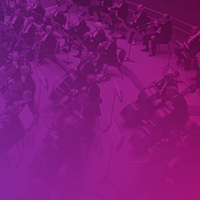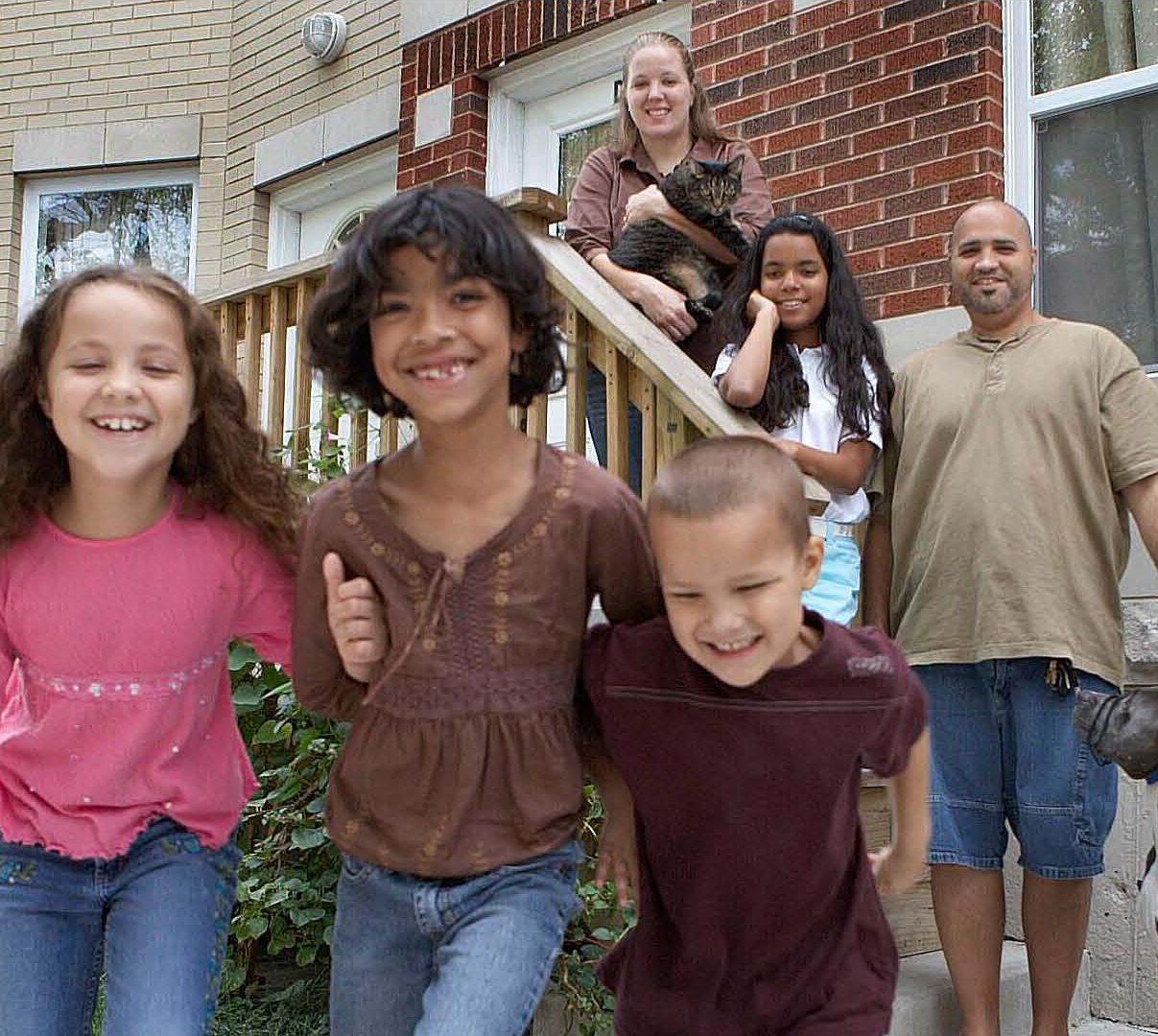MacArthur has deep roots in Chicago, where it is headquartered and where John D. and Catherine T. MacArthur lived. The Foundation seeks and seizes opportunities to work locally as an expression of its civic commitment to its home, and because being rooted in Chicago yields a deeper understanding of the issues faced by urban areas everywhere and how to address them.
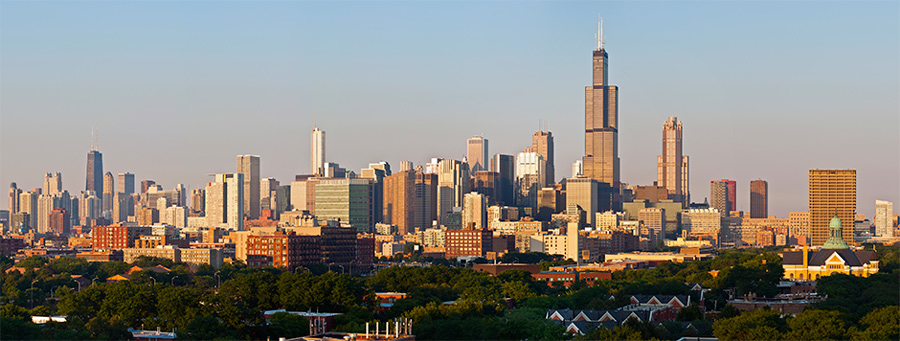
At a Glance
- Since 1978, MacArthur has invested nearly $1.2 billion in Chicago. Grants have supported more than 1,500 organizations and individuals in the region.
- Between 2003 and 2014, MacArthur invested more than $471 million to support community and economic development, arts and culture, and other activities in Chicago neighborhoods.
- MacArthur awards $10 million annually to more than 300 cultural organizations in the Chicago region, including theaters, dance groups, music organizations, visual art programs, film centers, museums, and libraries.
- Chicago is home to three innovation sites for MacArthur’s digital media and learning work, which aims to support positive change in American education through innovative approaches to learning.
- In collaboration with partners in the region, MacArthur seeks to preserve and expand Chicago’s stock of affordable rental housing. The Foundation also played a major role in helping to ensure that Chicago’s historic plan to transform public housing high-rises into mixed-income communities is successful.
- Through its Models for Change initiative, the Foundation invests in efforts to create models of juvenile justice reform through work in key states, including Illinois.
- The Foundation’s community and economic development grantmaking includes support for efforts to reduce gun violence in Chicago.
Our Grantmaking in Chicago
Arts & Culture
MacArthur awards $10 million each year to more than 300 arts and culture groups in the Chicago region, including theaters, dance companies, music organizations, visual art programs, film centers, museums, and libraries. These groups generate economic, cultural, educational, and community activity and contribute to the city’s reputation as a good place to live, visit, and conduct business.
The majority of the funding takes the form of multi-year, core grants that provide a stable source of support to organizations, giving them flexibility to fund ongoing work and take creative risks. The Foundation directly funds 53 large institutions (those with budgets over $2 million). Arts organizations with annual budgets between $500,000 and $2 million are supported through the MacArthur Fund at the Prince Charitable Trusts. Small groups, with budgets of less than $500,000, receive grants through the MacArthur Fund at the Richard H. Driehaus Foundation.
In addition, the Foundation supports special, time-limited projects and initiatives that benefit a set of arts organizations or the sector as a whole. Examples include the International Connections Fund, which helps arts organizations advance their work by collaborating with peer organizations abroad; the American Rhythm Center, which is a rehearsal, office, and teaching space shared among seven dance companies; and the Arts & Culture Loan Fund, which provides loans through commercial banks to small and medium sized arts organizations.
MacArthur Fund for Arts and Culture at the Prince Charitable Trusts
Through a funding partnership with the Prince Charitable Trusts, the Foundation supports mid-sized arts organizations with general operating funds. In 2013, this Fund awarded 48 grants totaling $1.6 million in new or renewed support to organizations such as the Chicago Human Rhythm Project, Hyde Park Art Center, Puerto Rican Arts Alliance, and Silk Road Rising.
MacArthur Fund for Arts and Culture at the Richard H. Driehaus Foundation
Through a funding partnership with the Richard H. Driehaus Foundation, the Foundation supports small arts organizations with general operating funds. In 2013, this Fund awarded more than 130 grants totaling more than $1.2 million in new or renewed support to small arts and cultural organizations such as Albany Park Theater Project, Fulcrum Point New Music Project, and Hedwig Dances.
Small Theater and Dance Fund at the Richard H. Driehaus Foundation
MacArthur co-funds the Small Theater and Dance Fund with the Richard H. Driehaus Foundation. This Fund supports companies with budgets less than $150,000. In 2013, this Fund awarded more than 80 new or renewed grants to the smallest theater and dance organizations such as Clinard Dance Theatre, Lucky Plush Productions, and Stage Left Theater.
Learn more about Arts & Culture ›
View all Arts & Culture grants ›
Community & Economic Development
MacArthur makes investments to improve conditions in Chicago neighborhoods, foster greater economic diversity, increase opportunity for low-income individuals and families, and develop new knowledge about effective responses to social and economic urban challenges. Historically, the program’s central initiative in Chicago has been the New Communities Program (www.newcommunities.org), a coordinated effort managed by LISC/ Chicago to address a comprehensive range of issues to measurably improve quality of life, including employment, health, housing, and violence reduction. The Foundation has made complementary investments to reduce gun violence, improve access to and use of information technology and data, and stimulate economic development.
Efforts in public safety include support for the Chicago Police Department’s Violence Reduction Strategy, evaluation of anti-violence programming targeted at keeping kids in school and away from contact with the juvenile justice system, and the University of Chicago’s Crime Lab, which uses research methodologies pioneered in the medical field to evaluate programs intended to reduce crime and violence locally and across the United States.
MacArthur is also exploring new research frameworks, institutions, and interventions that can help other cities in the U.S. and around the world make more informed decisions and address complex challenges more effectively.
Learn more about Community & Economic Development ›
View all Community & Economic Development grants ›
Education
Society is reinventing how knowledge is created, organized, accessed, and shared, with far-reaching implications for institutions of learning like schools, libraries, and museums. MacArthur’s digital media and learning initiative aims to support positive change in American education through connected learning, a new framework for thinking about and supporting learning that promotes discovery, creativity, and critical thinking through activities and real-world experiences that bring together academics and young people’s interests, and their peers and peer culture, often using digital and traditional media. Chicago is home to three innovation sites where it is possible to see connected learning in action:
- ChicagoQuest, a charter public school where pedagogy and curriculum are based on the principles of game design and aim to engender creative problemsolving, critical thinking, and productive collaboration
- YOUmedia, a popular teen learning space at the Harold Washington Public Library that is the model for more than 35 similar spaces that are planned or in operation in museums and libraries nationwide
- The Chicago Hive Learning Network, a group of civic and cultural organizations working together in new ways to reimagine how learning is organized and supported across geographic locations.
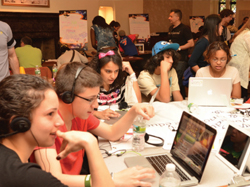
In summer 2013, MacArthur, in partnership with the City of Chicago and the Mozilla Foundation, piloted the first citywide use of a new alternative accreditation tool called “open badges” to capture and reward young people’s learning. More than 100 organizations participated, awarding more than 100,000 badges to nearly 30,000 youth.
Building on the success of that pilot, MacArthur, the City of Chicago, and MacArthur grantee Digital Youth Network have expanded the program to a yearround “City of Learning” program to motivate young people’s learning, connect them to jobs and internships, and set them on a trajectory for success. Youth have opportunities to engage in learning and earn badges year-round for new skills and competencies they acquire through a range of programs at museums, libraries, parks, and schools, as well as through self-paced online learning at home. Cities of Learning programs have also been initiated in five additional cities around the United States.
Learn more about Digital Media & Learning ›
View all Digital Media & Learning grants ›
Housing
The Foundation’s interest in housing— which is based on the premise that decent, stable, affordable housing is essential to strong families and vibrant communities—has focused primarily on the supply of affordable housing, funding direct investments in the preservation of rental housing. Activities also include research on the relationship between various attributes of housing and outcomes in areas such as health, education, and employment, and on policy reform that supports a balanced national housing policy and a stronger, more robust housing market that meets the needs of all Americans.

In Chicago, The Preservation Compact has brought together leaders from the public, private, and nonprofit sectors to craft a new vision for Cook County: to reverse the downward trend in Cook County’s affordable rental housing supply. To achieve this ambitious goal, the Compact is implementing the comprehensive Rental Housing Action Plan for Cook County, which includes initiatives designed to change the policy environment and preserve and improve existing affordable rental homes that might otherwise be lost to condominium conversion, demolition, or rising costs.
Learn more about Housing ›
View all Housing grants ›
Justice Reform
MacArthur’s juvenile justice initiative, Models for Change, seeks to create successful and replicable models of reform through investments in key states, including Illinois. The goal is to accelerate progress toward a more effective, fair, and developmentally sound juvenile justice system that holds young people accountable for their actions, provides for their rehabilitation, improves their life chances, and manages the risk they pose to themselves and to the public.
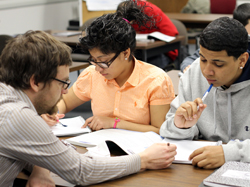
Illinois was chosen as one of four core Models for Change states because of its strong juvenile justice leadership, potential for collaboration, community and civic engagement, ongoing reform efforts, and receptivity to and readiness for change. The Foundation supports Chicago-based organizations working toward state-wide juvenile justice reform, including Northwestern University’s Children and Family Justice Center, the Community Justice for Youth Institute, and Youth Outreach Strategies.
The initiative is currently focused on sustaining momentum for reform by sharing and promoting successful models to critical reform audiences like law enforcement, judges, prosecutors, defenders, and legislators.
Learn more about Juvenile Justice ›
View all Juvenile Justice grants ›
Policy Research
MacArthur’s policy research initiative currently supports special projects focused on the use of benefit-cost analysis to promote effective policymaking and fiscal challenges facing the country with a focus on states and localities including Illinois. It has provided operating support for a small group of national and Illinois-based policy organizations that work primarily on fiscal issues. These organizations produce rigorous research and analysis and translate that work to enhance its value to policymakers, the media, and the general public. This work has included support for the State Budget Crisis Task Force to help draw attention to the fiscal challenges facing Illinois.
Research on U.S. immigration policy— one of three initiatives within MacArthur’s migration work—is focused primarily on economic and fiscal impacts, including the benefits and costs of immigration at the federal and state levels. A small group of grants explores a set of immigrationrelated issues in the Chicago area. For example, funding to the Chicago Council on Global Affairs supports its bipartisan Task Force on Immigration and U.S. Economic Competitiveness, which aims to enhance public understanding of immigration and its importance to the region’s economic future.
Learn more about Policy Research ›
View all Policy Research grants ›
Living in a Landmark
Completed in 1895, the 17-story Marquette Building is one of Chicago’s earliest skyscrapers, and an example of the renowned Chicago School of Architecture. As the building’s owner, MacArthur was pleased to support its restoration and preservation.
The Marquette Building was designed by the Chicago firm Holabird & Roche, which designed many of the city’s early tall office buildings. These new “skyscrapers” had steel skeletons holding up facades of brick and ornamental terra cotta, making them look light compared to their traditional masonry counterparts.
The building was designated a Chicago Landmark in 1975 and a National Historic Landmark in 1976. An exhibit on the history and architecture of the building is located in the arcade, just west of the lobby. The exhibit, which is free and open to the public, includes interactive kiosks and also features information about the work and history of the Foundation.
Learn more about the history of the Marquette building.



